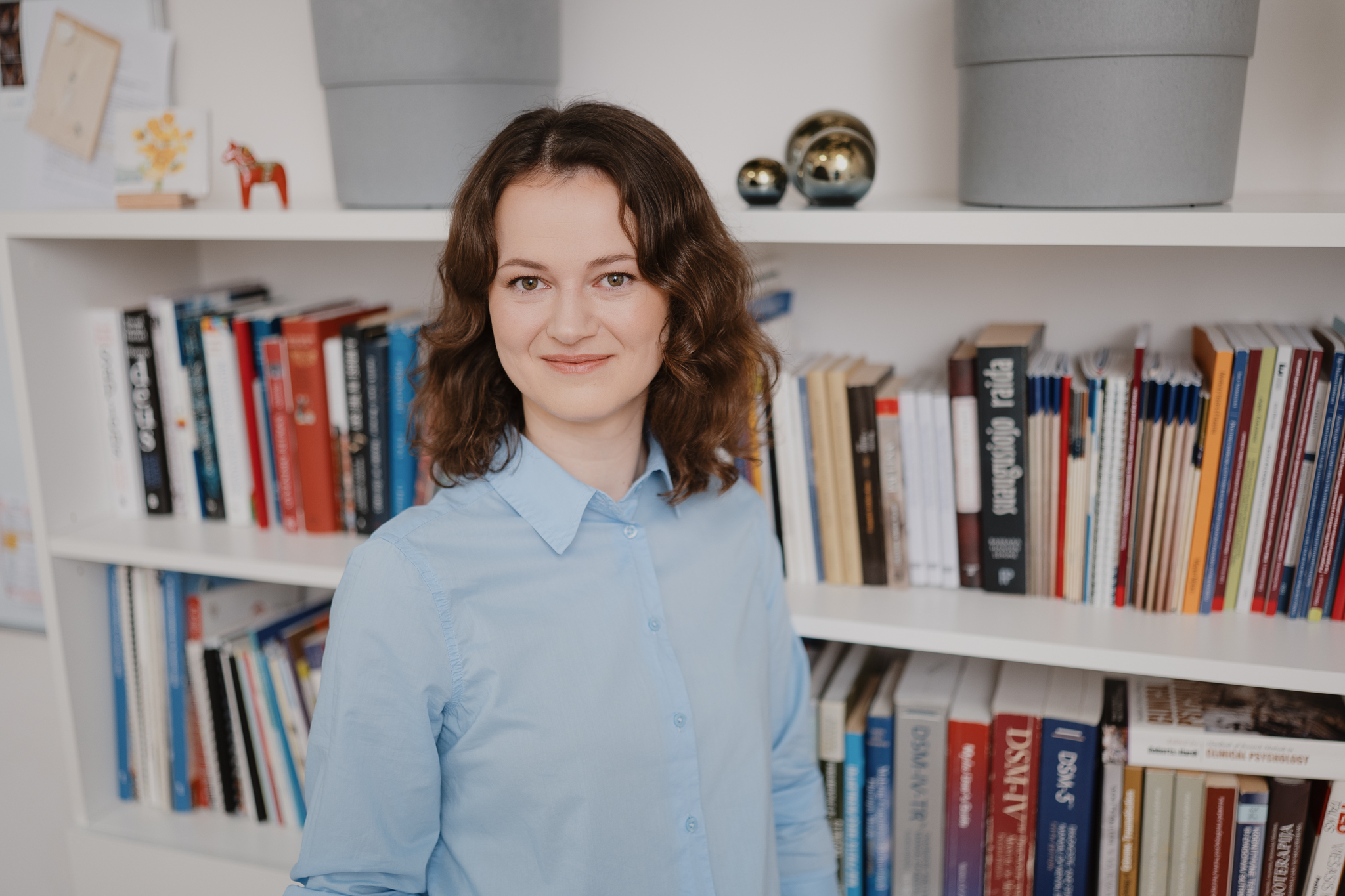VU Researchers Team Up with the WHO to Innovate Youth Mental Health Support
 Researchers at Vilnius University (VU) are working closely with the World Health Organization (WHO) to evaluate the effectiveness of a digital psychological programme for young people. Researchers from the VU Faculty of Philosophy are representing Lithuania as one of two countries in the world to evaluate the effectiveness of the WHO-initiated ‘STARS’ programme (Sustainable Technology for Adolescents and Youth to Reduce Stress), named ‘Sija’ in Lithuania. This innovative, chatbot-based digital programme is designed to help young people better understand their emotions, learn effective stress-management techniques, and apply them in everyday life.
Researchers at Vilnius University (VU) are working closely with the World Health Organization (WHO) to evaluate the effectiveness of a digital psychological programme for young people. Researchers from the VU Faculty of Philosophy are representing Lithuania as one of two countries in the world to evaluate the effectiveness of the WHO-initiated ‘STARS’ programme (Sustainable Technology for Adolescents and Youth to Reduce Stress), named ‘Sija’ in Lithuania. This innovative, chatbot-based digital programme is designed to help young people better understand their emotions, learn effective stress-management techniques, and apply them in everyday life.
VU’s involvement reflects international recognition and high scientific competence
Dr Austėja Dumarkaitė, a researcher in psychology at the Center for Psychotraumatology of the VU Faculty of Philosophy, is participating in the project along with her colleagues. She explains that VU is an active member of the broader ‘ADVANCE’ project, which includes partners from the leading European universities, such as the University of Copenhagen (Denmark), Vrije Universiteit Amsterdam (the Netherlands), the University of Geneva (Switzerland), the University of Verona (Italy), the University of Turku (Finland), and others. Assessing the effectiveness of the ‘Sija’ programme is one of the main tasks carried out by the VU research group.
‘The fact that Vilnius University is one of the partners in this major project reflects the level of our scientific competence and international recognition. The studies we conduct demonstrate the expertise of Lithuanian researchers, and they also position VU on a par with Europe’s most prestigious universities,’ claimed Dr Dumarkaitė.
A large team of VU psychologists are actively involved in evaluating the effectiveness of the ‘STARS’ programme. The team is led by Prof. Dr Evaldas Kazlauskas and includes Dr Dumarkaitė, Assoc. Prof. Dr Paulina Želvienė, Doctoral students Agnietė Kairytė and Livija Žiemienė, as well as research assistants, and Master’s students in clinical psychology. The team is not only conducting the research and analysing the collected data, but also contributing to the development of the programme to ensure it best meets users’ needs.
Where psychology meets technology
‘Young adulthood is a particularly sensitive period of life, often marked by numerous challenges and an increased risk of mental health issues. Traditional methods of psychological support are not always suitable or accessible for young people – this is one of the reasons why the WHO is seeking innovative solutions that combine conventional psychological approaches with modern technologies,’ explained Dr Dumarkaitė.
‘Sija’ is a five-week chatbot-based mental health programme. It consists of ten short online sessions – interactive conversations that help young people recognise their emotions, practice various stress management techniques, and strengthen their emotional resilience. Each session takes just 10 to 20 minutes, and the programme can be accessed anytime, anywhere, as long as users have an internet connection.
‘This is an easily accessible and interactive tool that allows young people to take care of their emotional well-being in a rather playful and engaging way. It’s important to note that although participants use the chatbot independently, they also receive brief consultations from specially trained volunteers. These consultations provide an opportunity to discuss their experiences, challenges, and more. This way, the programme combines individual work through a creative technological solution with personal support from volunteers who are ready to help,’ said the expert.
The ‘Sija’ chatbot provides young users with essential information about stress and introduces them to various evidence-based stress reduction techniques. Participants are encouraged to try out these strategies and integrate them into their daily lives based on their individual needs.
According to Dr Dumarkaitė, one particularly interesting aspect of working with ‘Sija’ is adapting it to different cultural contexts: ‘After receiving feedback from Lithuanian youth, we adjusted some of the emojis used in the local version of the programme. For example, the classic smiley face (🙂) was perceived as passive-aggressive in this context; a more subtle emoji with blushing cheeks (😊) worked better.’
A programme that could help millions of young people worldwide
The effectiveness of ‘Sija’ is currently being assessed in Lithuania and Jordan to ensure it works well across different cultural settings. VU researchers are not only conducting the studies and analysing the collected data but also actively contributing to the further development of the programme, helping tailor it to better meet the needs of young users.
‘The evaluation of the programme in Lithuania carries important international significance. Our data and findings will help the WHO decide whether to make it available globally. The experience of the younger generation in Lithuania is playing a key role in developing a tool that could support millions of young people around the world,’ stated Dr Dumarkaitė.
The initial data from the pilot study have demonstrated a positive impact on users’ emotional well-being, with participants responding favourably to the programme.
‘These are only preliminary results, but they already show potential,’ added the researcher. ‘Sija’ will soon be accessible to young locals. The participants of the programme will be involved in a research study, so this is an excellent opportunity to be among the first to try out a tool developed by psychologists and researchers. Stay tuned and follow VU communication channels for the official launch date and to register for the programme and the study. In the meantime, you can already sign up for the waiting list, and we’ll be in touch: www.sijajaunimui.lt.